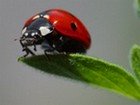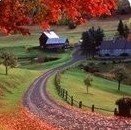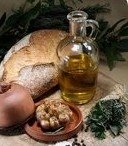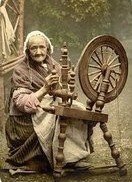Urban Homesteading: Heirloom Skills for Sustainable Living
by Rachel Kaplan
(Petaluma, CA)

Hi,I am writing to let you know about the release of our new book, Urban Homesteading: Heirloom Skills for Sustainable Living, which has a publication date of April 10th.
Our book is a beautifully illustrated how-to and why-to for the growing urban homesteading movement. You can also learn more about the book at our website, www.Urban-Homesteading.org. I am also attaching some additional information about the book itself.
I think your readers will be interested in this book and I hope you will let them know about it.
Best,
Rachel Kaplan
Co-Author, Urban Homesteading
FOR IMMEDIATE RELEASE
Urban Homesteading Takes Root In Cities and Towns Across the Country
Urban Homesteading: Heirloom Skills for Sustainable Living
If you thought living in a city limited you to recycling plastic bottles and shopping at a local farmer’s market, think again. Sustainable living—conserving an ecological balance by avoiding the depletion of natural resources—can touch every aspect of your life.
It’s available to everyone, no matter where you live. In cities and towns across the country, a growing number of urban dwellers are turning their homes into mini-farms complete with chickens, rabbits and goats. These urban farmers work cooperatively to create water, energy and waste-saving oases of abundance that enhance neighborhoods and communities.
Homesteading in cities and towns is a pioneering effort in the creation of local economies and revitalized urban landscapes—a proactive response to some of our culture’s thorniest problems.
The new book Urban Homesteading: Heirloom Skills for Sustainable Living (April 2011, Skyhorse Publishing) gives every day people the tools they need to live more sustainably, in small and big ways. Urban Homesteading, by Rachel Kaplan and K. Ruby Blume, is a comprehensive guide to self-reliance, green living and the growing movement of urban homesteading around the country.
"We are at a cultural crossroads in terms of our relationship to the earth," Kaplan says. "It’s clear that what we’re doing isn’t working anymore, and we need to find another way to live. Urban homesteading offers a series of practices that help us become stewards of the earth."
The sustainability movement strives to meet the needs of the present without compromising the ability of the next generation to meet the needs of the future. Urban Homesteading is one part of this groundswell, and coast-to-coast, homesteaders are creating working models for affordable, abundant and beautiful ways to live. "It's well past time for us to design our lives in sustainable ways," Kaplan says. "Learning to meet many of life’s basic needs in a way that takes care of the earth is good news."
The connections between global warming, non-renewable resource depletion and economic instability are inspirations for embodying sustainability at home. "Fueled by the challenges in the current economic and environmental climate, this is a movement of people who are ready to be the change now," Kaplan says.
Urban Homesteading is a richly written and illustrated how-to and why-to for the urban homesteading movement, including interviews with homesteaders who share their successes, failures, and inspirations for eco-friendly lifestyles. Kaplan and Blume focus on do-it-yourself projects ranging from growing your own organic vegetables and fruit, caring for ducks and building a worm bin to implementing a rainwater storage system and generating resilient homegrown economies in our neighborhoods.
In Urban Homesteading learn to:
• Create a personal sustainability plan based on your time, space, and energy needs
• Start a community garden
• Implement the essential principles of permaculture which focus on thoughtful designs for
small-scale, labor-efficient spaces that use biological resources instead of fossil fuels.
• Turn any small space into a lavish food-growing zone
• Nurture an interactive relationship with food—canning, fermenting, freezing and
cheese-making
• Use homegrown herbs to make your own medicine chest
• Build mutually beneficial relationships with animals such as ducks, chickens, and
goats
• Power down your home—make changes in energy and water use in all climate types
• Make time for healing rituals and self-care tips for sound body, mind, and spirit
Interviews with homesteaders focus on food production and preservation; concerted reduction, reuse and recycling practices; water conservation by re-using household water and collecting rainwater; maximal energy conservation and the zero net energy house; personal care; and urban farming projects that serve our most vulnerable citizens. Read about their stories in their own words, and get inspired to join the ranks of the urban homesteading movement.
About the Authors
Rachel Kaplan has been gardening in and around urban environments for more than 20 years and belongs to a bicoastal family of farmers and gardeners. She is a psychotherapist and educator, and offers consultation with a permaculture focus for businesses, non-profits, schools and community groups. She holds a Masters Degree in Counseling Psychology from Sonoma State University, and a second degree in Interdisciplinary Arts from San Francisco State.
She has written and edited numerous books, including The Probable Garden of Eden. Rachel lives in Petaluma, California with her partner and their daughter on a little homestead they call Tiny Town Farm.
K. Ruby Blume is an educator, gardener, beekeeper, artist, and activist, with more than twenty years of experience gardening in urban settings. She has worked extensively in the arts and is the co-founder and artistic director of Wise Fool Puppet Intervention, an environmental justice project.
In 2008, she founded the Institute of Urban Homesteading, a project dedicated to promoting localism, self-reliance, and urban sustainability through low-cost adult education. Ruby lives and works in Oakland, California.
For an interview with the authors, please contact Rachel Kaplan at rachelkap@fullcup.info, or 415-269-2721.
Urban Homesteading: Heirloom Skills for Sustainable Living
By Rachel Kaplan with K. Ruby Blume
Skyhorse Publishing
Release Date: April 10, 2011
Paperback, 304 pages, 8 x 10
300 color photos and illustrations
ISBN: 978-1-61608-054-9
Price: $16.95 ($21.50 Canada)
Did you find this page helpful?
Sharing is a way of saying, "Thanks!"
Follow Us and Keep Up to Date
Go back to the Home Page





